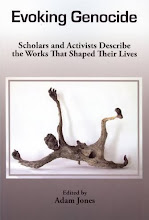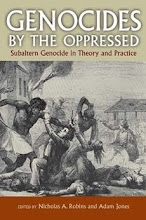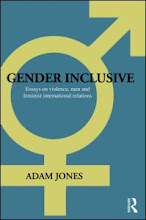 |
| "Thet Sambath's first documentary about the Khmer Rouge, Enemies of the People, was shortlisted for an Academy Award." |
By Kate Hodal
The Guardian, March 25, 2012
"One of Cambodia's leading journalists and foremost researchers on the Khmer Rouge has told the Guardian he fears for his life after a two-year harassment campaign by state security forces he claims are attempting to prevent him from completing his latest film about the Killing Fields. Award-winning film-maker Thet Sambath -- whose 2009 documentary about the Khmer Rouge, Enemies of the People, was shortlisted for an Oscar -- claims that uniformed soldiers and plainclothes 'spies' working for the Cambodian government have repeatedly followed, harassed and chased him by car and motorbike, with the intention of "'making [him] disappear'. 'They are concerned I will reveal their true crime [through the new film] and ... [that] their reputation will be destroyed,' Sambath said. 'I know too much about what really happened. They want me dead.' Sambath, a senior reporter for the Phnom Penh Post, said the harassment started in May 2010 after news reports circulated internationally about Enemies of the People. Largely regarded as a political and historical watershed, it is the only Khmer Rouge documentary with testimony from the regime's no 2 and ideological leader, Nuon Chea, whom Sambath spent 10 years tracking down and interviewing. In the film, Chea admits he and Pol Pot decided to 'kill and destroy' party members they considered enemies of the people, while lower-ranking cadres demonstrate, in graphic detail, how they implemented orders to slit the throats and dump the bodies of those targeted. The film created a huge stir abroad and locally, winning the Sundance jury prize as well as some 30 other awards, and stimulating dialogue about a traditionally taboo subject in Cambodia itself. But Sambath's follow-up film poses a greater concern for the future of the nation, he says.
'The first film explained "how" the Khmer Rouge did the killing, now this film looks at "why",' says Sambath, 45, of the tentatively titled Suspicious Minds. 'And the answer is not the same as what the Cambodian government has been telling the public for all these years. The real story is politically huge. It will make everyone in Cambodia come out and talk, and the government will have to explain why they lied.' Pol Pot has long been regarded as the mastermind behind the genocide that claimed nearly a third of Cambodia's population by 1979. Through interviews with regional and senior former leaders, Suspicious Minds, however, argues that it was caused by political infighting within the party, with attempted military coups and assassinations, and massacres in villages aimed at creating an unstable government and ousting Pol Pot from office. 'The reality is that the party was split beforehand and the split of the party caused the Killing Fields,' says Rob Lemkin, an Oxford-based film-maker who co-directed Enemies of the People and is producing Suspicious Minds. In uncovering the truth about the brutal regime which, in its short reign from 1975-79, killed off 1.75 million people, Sambath says he has turned himself into the unwitting target of a government still manned by former soldiers. He says he has faced police checkpoints outside his house in Phnom Penh, intimidation from armed thugs and 'car chases like in Hong Kong films' deep in the wilds of rural Cambodia, where he conducts most of his interviews. The government aim, he says, is to make him a victim of kidnap, robbery or car accident -- events that are difficult to prove aren't just the result of bad luck. The government says it is unaware of his case. ... Sambath has long kept a low profile, frequently moving house, using false names and changing schedule. His interview with the Guardian took place in five locations in two provinces over three days. Even his wife and two children are often unaware of his exact whereabouts and work projects -- simple precautionary measures to keep them safe, he says, as police reports he has filed regarding the harassment have been inadequately investigated. Now Sambath spends much of his time in and out of hospital for shortness of breath and heart palpitations that he thinks are directly related to stress. He has had to suspend work on the second film until his health improves. While Cambodia is celebrated for having a freer press than its south-east Asian neighbours, Sambath's case of intimidation and harassment is not unusual, according to Phil Robertson, of Human Rights Watch, who says that journalists in Cambodia often face threats, assaults, arrests, imprisonment and staged 'accidents'. 'Culpability for Khmer Rouge atrocities is one of the real electric wires of Cambodian politics,' Robertson says. [...]"














No comments:
Post a Comment
Please be constructive in your comments. - AJ